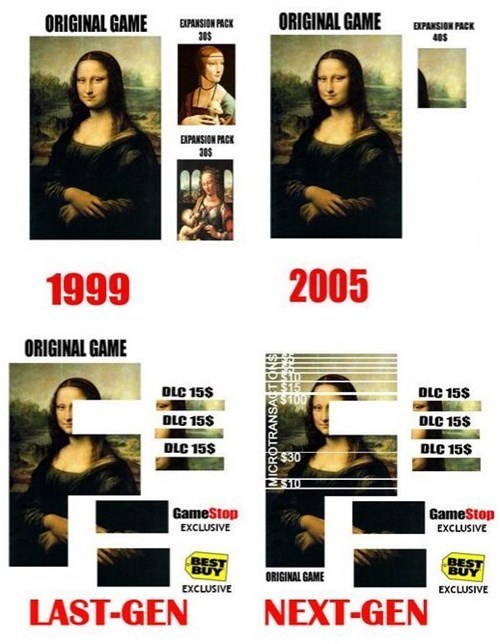#washington state gambling commission
Let’s go back in time just over ten years ago when the console war between big names like Sony, Microsoft, and Nintendo, raged in a great offensive to contrast the dominant PC base back then. A bit of history here trying to refresh the memories of gamers and non-gamers. Until the first half of 2000s PC titles were displaying the top shelves at your local Gamestop with their thick boxes as the DVD format became a standard pushing for bigger titles. At the same time console were still expanding and learning the consumer behavior of the players, but games had still little to no cross-platform so they were created for dedicated hardware.
Fast-forward today and everything is gone: video game stores have been closing with the advent of online platform like Steam and other outlets. But this is just the beginning of a new story that takes place online, where the face of gaming has been changing drastically so far. Gamers are now experiencing a whole new and different scenario of title quality and gameplay.
In the second decade of the 21st century a new different method of gaming has spawned and has been successful. Players have been shifting from purchasing a fully finished game inside a box to a platform of entertainment made of unfinished programming. Triple A titles have taken the habit of being release with the intent purpose of achieving their entirety through continuous purchases from the players. You are now getting sold video games that are meant to be consumed above their original price tag.

A funny yet realistic accountability of the gaming situation…
The rise of partially executed software for PC and eventually consoles has become (unfortunately) a common practice to yield more profit for the developers and the publishers. You are now getting the original title at a 80% out of its 100% so the remaining can be delivered to you in the following:
- deluxe game edition
- expansion
- retailer exclusive
But this is not the end. This is the norm now, the rest has become a much deeper problem in the last years that is costing gamers more than they originally paid for the game they wanted. Today micro-transactions of all kinds are the standard meal for the top gaming tears, which includes EA, Valve, Blizzard, Activision, Ubisoft, and neighbors.
Off course, nobody is pushing players to open their wallets to include more digital content; however, the situation shifted from adding something extra to adding something that should have been there since the beginning, to adding something needed. The easiest analogy that comes to mind is when someone purchasing a car at the dealership is paying more for features that aren’t includeden the standard package; fair enough and everybody agrees with it. But now it has come to having to pay more to have the air conditioning and the windshield: you can still use your car but it’ll be very uncomfortable without those two necessary items.

The apex of this phenomena translated after the release of Counter Strike: Global OffensivewhenValve included its reward system of loot in the shape of a crate, which needs a key to be opened and that key costs real money. Players have to add funds from their credit card to their virtual wallet in order to be able to open such crates, which contain for the majority items of very low value that are resold for pennies. On the other hand there’s the very low chance that a rare and high valued item might spawn, it can be sold on a virtual market on Steam for hundred of dollars making some people very happy and generating a system based on chances of getting what you wish for. At worst this is gambling, at best it’s dishonesty.
In 2016Washington State Gambling CommissiongaveValve until October of the same year to end their game skin gambling. This issue came with no surprise to me since I’ve been playing Counter StrikeandTeam Fortress 2 from their releases. It was clear that something was wrong if a gaming commission knocks at your door with official papers. Despite the court battle we cannot ignore the fact that millions of players around the world have poured millions of dollars in digital and extra content outside any original gaming release price.
What does all this mean?- It means that there’s a problem in the gaming community because there’s a behavior at play which entangles the user in sliding into a practice which has become far too common: paying to win. This translates into having a large chunk of players willing to use their credit cars to achieve a status which is not granted by simply purchasing the game, but rather adding real money in order to access the full intended game.
The latest scandal of uncomfortable micro-transactions and game addiction came in the form of uproar from the player base.EA pulls out their e-commerce of digital goods in the wake of online protest from Star Wars Battlefront 2. Winning upon paying? Sounds like that recently and for some times. Forms of favorable upgrades in gaming experiences are around to push the user into spending more to enhance the game quality. But the worst part if how casual EA executed the whole thing from the beginning by allowing this pay-to-win system to be released: purchase this item to easily win against other players and not by skill.
It’s worrisome that we have reached the slot machine level that Las Vegas does to enjoy what was just recently a standard gaming experience. Gambling forms of video games platform shouldn’t be there for players to go through, because this entertainment square is widely open to kids who are minors and don’t understand the concept of what gambling is and how does it work, especially when you allow it inside their favorite games. The line between fun and sorrow easily blurs and disappears.
Gaming addiction can only become worse when the legitimization of real money in video game gambling becomes the norm, which in part has been happening in the realm of digital products .I can only hope that game developers along publishers understand the basic relationship of digital entertainment: a virtual game for a virtual fun. That’s all.
